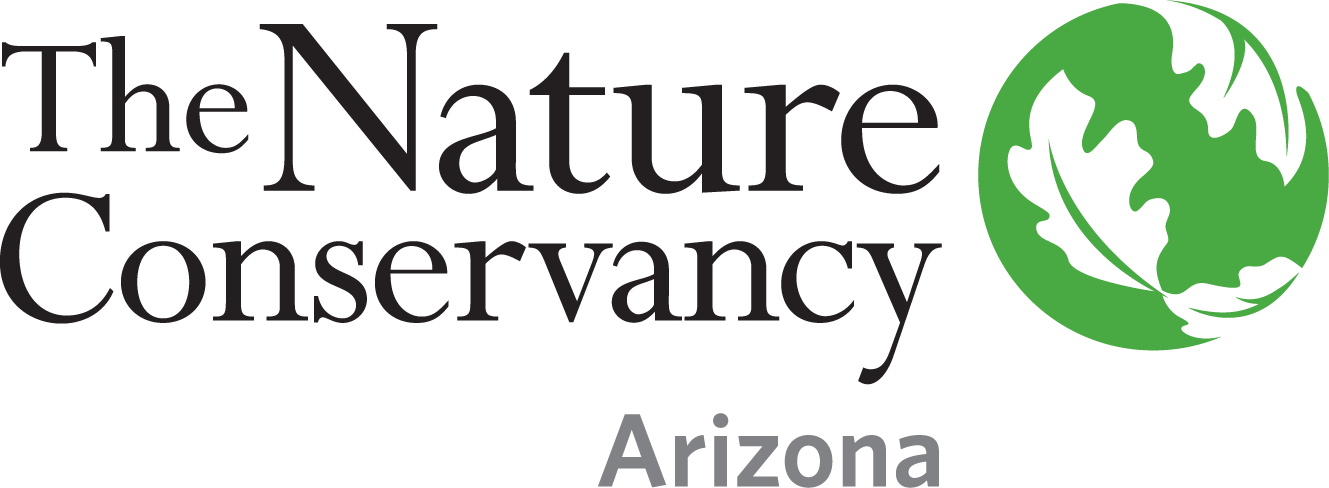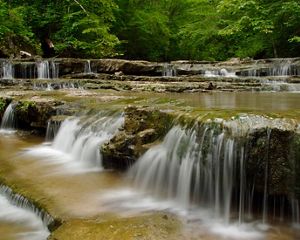Safeguarding Tennessee's Natural Legacy
From the beautiful Appalachian Mountains in the east to the fertile Mississippi River Basin in the west, nature plays an essential role in the lives of Tennesseans, and policy makes conservation possible. With your support, we can continue to work toward a vibrant and resilient future for our beloved state.
We advance policy solutions that strengthen the connection between nature and people.
Explore Our Legislative Priorities
-
To date we have secured 450,000 acres of land in Tennessee, and we aim to conserve an additional 50,000 acres by 2030. A key component of our strategy is to play a “partner assist” role, where TNC lends expertise and financial support to priority real estate transactions. This requires access to capital, and Tennessee currently lacks a recurring grant funding source for nonprofit partners to access for land acquisitions.
The Tennessee Heritage Conservation Trust Fund (HCTF) was created in 2005 by Governor Bredesen to assist the State in permanently conserving and preserving tracts of land to promote tourism and recreation; protect, conserve and restore Tennessee’s physical, cultural, archeological, historical and environmental resources; and preserve working landscapes. Budget appropriations put $30 million into the account between 2005 and 2009, and the fund was not funded again until Governor Lee appropriated $30 million in 2023 and $71.5 million in 2024 legislative sessions. TNC is currently exploring opportunities to secure a recurring source of revenue for the HCTF and will pursue legislative support for this effort.
-
Streams, rivers, lakes and wetlands are critical to the well-being of people and nature, providing valuable—and often irreplaceable—sources of drinking water and habitat for fish and wildlife. They also power local economies and thriving communities. Approximately 60% of wetlands in Tennessee have already been lost to ditching, draining and development. Those losses are concerning for the many benefits wetlands provide for wildlife habitat, drinking water quality, flood control and groundwater recharge.
TNC will continue to advocate for strong wetland protections and science-based definitions for geographically isolated wetlands.
-
Conserving freshwater diversity of the Tennessee and Cumberland river basins by ensuring the restoration and maintenance of ecosystem processes to improve floodplain, wetland, tributary and mainstem river habitats is a priority.
We will work to ensure there is adequate state and federal funding to support activities for barrier removal, Duck River and Cumberland River conservation, environmental flows and sediment abatement. Additionally, we will monitor proposed regulatory approaches that support or remove obstacles to better manage these natural resources.
-
Forests cover approximately 53% of Tennessee and are under threat from urbanization, fragmentation, climate change, wildfire, loss of diversity, invasive insects and disease. TNC is working to enhance forest resiliency in Tennessee through the restoration, improved forest management and permanent protection of private forestland. TNC will strive to:
- Ensure that legislative proposals incorporate science and data from the Tennessee Forest Action Plan and State Wildlife Action Plan to guide priorities for implementation and funding.
- Ensure the state maintains adequate funding and capacity for active forest management, including prescribed fire.
-
Floodplains and wetlands in west TN have been seriously degraded over the past 100 years, and TNC is working to restore and conserve these ecosystems to benefit water quality and wildlife habitat. Additionally, TNC is working to reduce nutrient runoff from agriculture and increase practices on farms that would support biodiversity and carbon reduction/sequestration.
TNC will support funding for restoration projects on the Lower Mississippi River, assess feasibility and funding opportunities for expanding Tennessee’s river basin management agency to cover additional geographies, urge state support for agricultural conservation practices.
-
To limit global warming to less than 1.5 degrees Celsius and reach TNC’s 2030 goals of avoiding or sequestering 3 billion metric tons of carbon dioxide emissions globally each year, TN is focusing climate work based on the Southern Division's three strategic pillars for climate mitigation: natural climate solutions, renewable energy transitions and greenhouse gas emissions reductions.
TNC will identify legislative and funding opportunities to implement recommendations from the TN climate action plan, provide tools and resources to support siting solar and renewable energy projects to minimize impacts to lands of conservation value, and provide expertise to expedite rapid deployment of renewable energy.
Download a Copy
-
Download a copy. Contact information for our Government Relations Director is included.
How We Can Work Together
to Make a Difference
-
Partner
We partner across sectors to collaboratively address nature loss alongside landowners, organizations, communities, and local, state and federal government agencies.
-
Policy
Develop conservation policies that reflect our shared values and goals, ensuring the protection of nature while enabling effective natural resource management strategies.
-
Fund
Invest in our future by funding initiatives that encourage conservation of our lands and waters and balance development with ecological integrity.
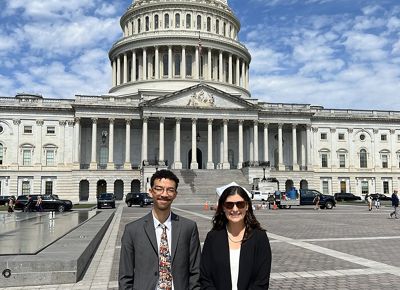
Decades of Hands-on Expertise Working with Communities & Government at All Levels
Since 1951, we have shared policy recommendations and fostered a world where both people and nature thrive. As a non-partisan, evidence based organization, we strive to advance policy solutions that support land and water conservation.
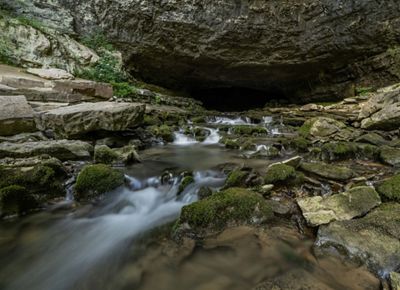
Tennessee's Living Landscape
Tennessee is home to more than 10,000 caves, making up about 20% of all known caves in the United States. These caves are crucial habitats for numerous species, including the federally endangered gray bat and Indiana bat.
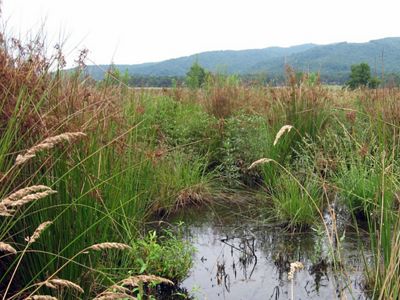
How TNC Uses Land Acquisitions & Conservation Easements to Conserve Tennessee
These powerful and effective tools allow us to protect open space lands from intensive development. TNC uses land acquisition to purchase land to preserve it for conservation, agriculture and outdoor recreation. Conservation easements offer a unique solution, allowing landowners to protect their land while continuing to live on and use their land, at the same time potentially providing them with tax benefits.
Learn more about how we are conserving Tennessee's resilient lands.
-
Tennessee residents cherish their natural heritage and are committed to safeguarding it. Land conservation helps improve water quality and supply, boosts resiliency against storms and provides habitat for diverse species. Protecting land also has economic benefits such as support for agricultural productivity and creating more opportunities for people to get outdoors and connect with nature. Investing in land conservation today ensures a healthier, more resilient environment and quality of life for all who call our state home.
-
Our mission is to conserve the lands and waters on which all life depends.
We see an exciting future for nature. A future filled with opportunities and possibilities. A future where nature beats the odds. Where a better tomorrow exists thanks to forests, grasslands and streams. Coral reefs and mountain ranges. Animals great and small. Our human communities. By collaborating across boundaries, borders and divides, we can manifest this reality because together, we find a way.
By sharing our experiences and valuable insights, we can help inform policy that moves conservation forward.
Advance Meaningful Policy for Tennessee
Thoughtful conservation policies drive meaningful statewide progress. Let’s unite to conserve nature, empower communities and ensure lasting solutions for our treasured state.






A Sunset Over Memphis: A family walks the banks of the Mississippi River to view a sunset over Memphis, Tennessee. © Rory Doyle

Stilt Bug: A stilt bug rests on a lady slipper flower in Tennessee. © The Nature Conservancy/Tennessee

Southern Cavefish: Typhlichthys subterraneus, southern cavefish, in Hazel Ward cave in Warren County, Tennessee. © Stephen Alvarez

Doe Mountain: View overlooking the landscape at Doe Mountain, Tennessee. © Britt Townsend/TNC

A Beautiful Tennessee Day: Bikers ride on Riverside Drive next to the riverfront in Memphis, Tennessee. © Rory Doyle
Take Action for Tennessee
Every acre we preserve, every river mile restored, every habitat we save for wildlife is because of you.

